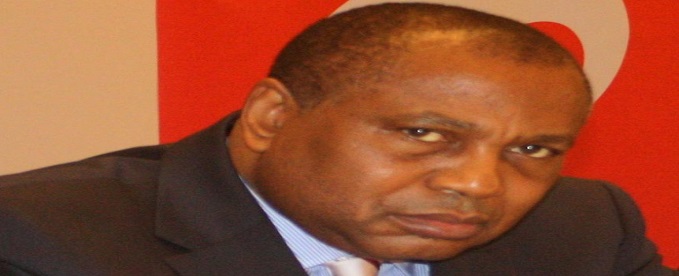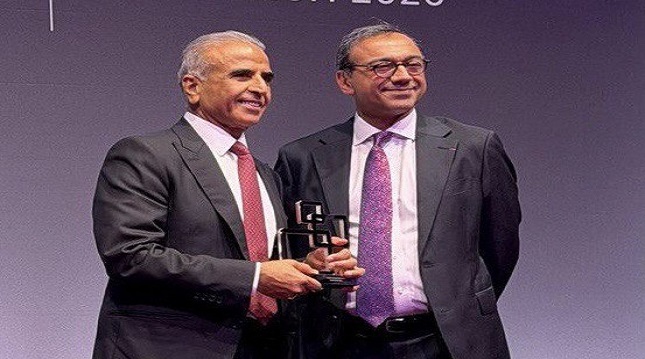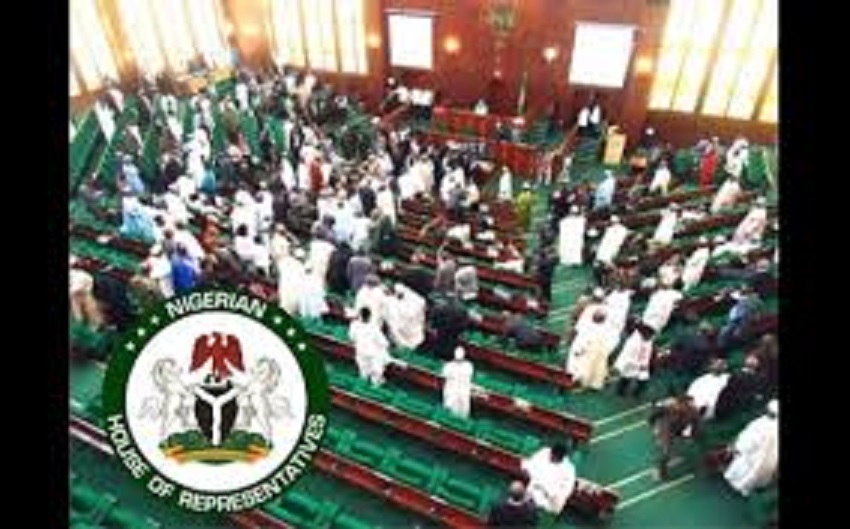Telecom
Eugene Juwah, Former NCC Boss Dies in Canada

Dr Eugene Juwah, former executive vice chairman and chief executive officer of the Nigerian Communications Commission (NCC) is dead.

Eugene Juwah, Former, EVC, NCC
Juwah, according to family sources, died in Canada where he relocated to after his tenure expired in 2015 and was succeeded by Prof. Umar Dambatta.
The family have not issued any statement on the demise of the Delta State born technocrat as at the time of going to press
Juwah, played coordinating roles in the setup of ETACS, GSM and CDMA mobile network in Nigeria, possesses hands-on knowledge of specification and construction of digital exchanges, base stations, data communications and subscriber access networks.
At the Nigerian Communications Commission, Juwah has championed the introduction of Emergency Communication Services, Mobile Number Portability, Sim Card Registration and Broadband Access Expansion.
Juwah had over 30 years of experience in information Technology and telecommunication industries with more than 20 years of the above at top management level.
Juwah was a fellow of the following Professional bodies Nigerian Society of Chemical Engineers, Nigerian Computer Society & Nigerian Society of Engineers.
Fresh out of university, he started his career as a computer systems programmer with Shell BP Petroleum Development Company from 1976 – 1978.
As a young graduate working in a multi-national company, he developed and maintained computer applications programs in the Commercial Information Systems Section of the Information and Computer Systems Department (ICS).
He worked with the team that repositioned business activities such as General Ledger, Accounts Payable/Receivable, Materials Resource Planning and Payroll as a practical demonstration of his hands- on experience
It was from Shell BP that he moved to Leventis Technical Ltd, a computer systems/telecoms subsidiary of the famous Leventis Group, a Nigerian conglomerate.
He held various positions during his stint with the company.
He was a System Analyst from 1982 to 1984, Sales Manager from 1984 to 1986 and Marketing Manager from 1986 to 1988. It was in 1988 that he was elevated to the position of Divisional General Manager (Computer systems).
He held this position until 1993 when he was poached by one of the pioneer cellular telecoms company in Nigeria –MTS.
In recognition of his expertise, Juwah was appointed to serve as Director, Cellular Operations, for Mobile Telecommunications ServicesLtd (MTS). He was one of very few people that participated in the erection and testing of the first privately owned mobile telecommunications network in Africa through MTS.
He was personally responsible for the quality of service that MTS delivered through his direct supervision of several departments like the Technical, Dealer Sales and Support, Customer Service, Switch and Billing Operations and Engineering operations.
The top flying professional delivered his duties so efficiently yet effortlessly at MTS between 1993 and 1996 that his technical know-how was noticed by CIL (now Globacom).
He was drafted into the new company in 1997 in preparation for the roll-out of the new era in the history of Nigerian telecommunications.
It would be recalled that CIL was one of the very few companies that won provisional bid to operate the global system of mobile telecommunications (GSM) in Nigeria during the regime of late General Sani Abacha before the license was voided by the democratic regime of Olusegun Obasanjo. While at CIL between 1997 and 1999, he was Director, Special Duties whose duties include the supervision of CIL’s 30,000 capacity GSM Network infrastructure the company had before its metamorphosis into Globacom.
During his period with the company, he coordinated the technical, business and commercial aspects of negotiations leading to the signing of agreement for purchase and start up of a 30,000 GSM 900 Mobile Cellular Network with Alcatel of France.
He also led negotiation teams to NCC for license award and revalidations as well as frequency allocation and regulatory compliances.
The versatile people manager also supervised detailed radio network study and microwave transmission network survey for the successful take-off of the project.
Not one to ignore the minutest detail, Juwah coordinated site acquisitions and the construction of MSC and base stations for the initial 30,000 GSM Network capacity.
On the commercial end for CIL, he supervised the start up data requirements for Interconnection and MSC software customization.
These include access networks and routing details, Customer Care and Billing System as well as Data preparation.
He also designed the detailed Business Plan of the company as the primary financial model which today guides its operations. In a clear-cut demonstration of his people-skill, he was instrumental to the recruitment of the company’s initial high-level staff which included some expatriates.
Following the re-alignments in the evolving mobile telecoms sector in 1999, Juwah was again poached by MTS as Executive Director (Network and Operations), a position he held until sometime in 2005. From 1997 to 1999 that he was away from MTS, the company which started-out as a very promising telecoms company suffered a period of dormancy. It was therefore a major task for him to click the re-start button of MTS by playing a significant role in the restarting of MTS operations. He also coordinated liaison with NCC for license renewal, frequency permits, equipment type approval and interconnection regulatory compliances. All of these were made possible because of his vast experience in the sector as well as his well oiled network across board.
On his return to MTS, Eugene also coordinated operational activities for the rollout of the CDMA Fixed Wireless Service, which include MSC and cell site design, construction and commissioning, other operator interconnection design, negotiation, testing and commissioning, integrating a new prepaid calling system and a new Packet Data Service Network for data and internet services.
He also led technical negotiation teams in the projected new areas of business activities of the company. Some of these new areas include Long DistanceCarrierand International Data Access Businesses sectors.
On a professional note as a consultant, Juwah has served in so many executive capacities as consultant. He was Chief Executive Officer of Transaction Technologies Ltd. (TTL) from 1996 to 1997.
The company specialized in the provision of network solutions to telecommunication networks. He was also lead consultant to Communications Investments Ltd where he provided advice and guidance in negotiations with Motorola of USA for the purchase of a 10,000 capacity GSM Network.
He also coordinated the development of a full feature Telephone Banking System and the development of a Cloning Fraud Control System for Analogue Wireless Networks.
Still on consultancy, he was also Lead Consultant to Intercelluar, a fixed wireless network operator in Nigeria, on purchase, installation and operation of a customer care and billing system.
During this period, he entered into representative agreement with Natural Microsystems of US and Eureka of France for the development of sophisticated prepaid billing platforms.
There is no gain saying the fact that the high flying Juwah is well read and never misses any opportunity to brush-up on new developments in his career.
Below is a sneak-pick into his supplemental career enhancement strides. Prepaid Calling Solutions, Alcatel SEL , Stuttgart, Germany, 1998; Customer Care and Billing Systems, Alcatel SEL, Stuttgart, Germany, 1998; GSM Infrastructure Manufacture and Testing, Alcatel SEL, Gunsenhausen, Germany 1997 and Telecommunication Regulation and Operator Interconnection, IBTC, London, 1995. Others include Pricing, Billing and Fraud in Telecommunications, IBTC, London 1994; TACS Infrastructure and Operations, Cellnet, Slough, England1994; Computer Systems Management, Control Data, Minneapolis, USA 1991 and Advanced Computer Systems, Control Data, Minneapolis, 1990.
It is this broad array of academic and professional qualifications as well as a wide range of experience spanning over three decades that Juwah will be bringing to bear on the NCC task. Indeed, it can safely be said that the telecoms industry in Nigeria is set for an upward swing.
Juwah was married and blessed with two children who are still teenagers. “I spent a long time in school so I didn’t get married on time,” he explains in a manner of excusing his rather late fulfillment of man’s procreation mandate. He relaxes mostly at the Ikoyi Club where he plays tennis every other Saturday when the demands of business is lenient enough to allow him time.
Telecom
Konga Launches ‘Berekete Sales’ with Up to 50% Discounts Across Major Categories

Nigeria’s leading composite e-commerce platform, Konga, has announced the launch of its highly anticipated Berekete Sales, a nationwide promotional campaign designed to deliver exceptional value to customers across key product categories.

Konga Berekete
The initiative reinforces Konga’s commitment to affordability, accessibility, and innovation while strengthening its position as a trusted retail partner for millions of Nigerians.
The Berekete Sales campaign features discounts of up to 50% on high-demand categories including Home and Kitchen, Computing, Electronics, Beauty, and Personal Care.
Carefully curated to meet both everyday and aspirational needs, the campaign comes at a strategic period that coincides with Ramadan, Lent, and the approaching Eid al-Fitr celebrations, seasons traditionally associated with reflection, generosity, and family-oriented spending.
Speaking on the campaign, Victor Olaleye, Konga Group Head of Marketing, emphasised that the Berekete Sales initiative reflects the company’s understanding of the economic climate and the importance of value-driven retail experiences. “Berekete Sales is about delivering abundance in savings to our customers,” he stated.
“We recognise that this period is significant for many households observing Ramadan and Lent, and we want to ensure they can access premium products at competitive prices.
“Our goal remains to make quality products accessible while maintaining the seamless shopping experience Konga is known for.”
Among the standout offers is a special deal on the Starlink Gen 3 kit, now available at ₦550,000, reduced from its regular price of ₦590,000.
As the authorised distributor, Konga continues to provide customers with reliable access to the high-speed satellite internet solution, further strengthening connectivity options in Nigeria.
Activation services are available in select cities, ensuring a smooth transition to enhanced internet performance.
In addition, technology enthusiasts can take advantage of an exclusive offer on the Huawei Watch 3, with a special promotion that allows customers to receive two units for the price of one at ₦200,000.
This offer underscores Konga’s strategy of delivering premium lifestyle products with unmatched value.
The Berekete Sales campaign also extends to computing solutions, with attractive deals on ASUS laptops, catering to professionals, students, and businesses seeking performance-driven devices at competitive prices.
Furthermore, customers can pre-order the new Samsung Galaxy S26 Ultra on Konga and receive gift items worth over ₦500,000 from Samsung, a compelling incentive for early adopters and technology enthusiasts.
By aligning its promotional calendar with key religious seasons, Konga demonstrates cultural awareness while providing practical solutions for customers during Ramadan, Lenten observances, and Eid celebrations.
The campaign ensures that households can upgrade their living spaces, enhance productivity, and invest in quality lifestyle products without straining their budgets.
Beyond the discounts, Konga’s integrated ecosystem, spanning secure payment solutions, nationwide logistics, and reliable customer support, ensures a seamless shopping journey from browsing to delivery.
This operational strength continues to differentiate the brand within Nigeria’s competitive e-commerce landscape.
As consumer expectations evolve, Konga remains focused on delivering not just products but complete retail experiences anchored on trust, transparency, and value. The Berekete Sales campaign is positioned to drive significant traffic, boost sales volumes, and deepen brand loyalty across its growing customer base.
With substantial savings, premium product offerings, and time-sensitive deals, the Berekete Sales As the campaign gains momentum, customers are encouraged to visit Konga.com or any Konga retail store nationwide to take advantage of these limited-time offers.
With its blend of spiritual season sensitivity and high-tech accessibility, Konga continues to set the pace for the future of commerce in Africa.
Telecom
Sunil Bharti Mittal Conferred GSMA Lifetime Achievement Award for Transforming Global Telecommunications

The GSMA has conferred a rare Lifetime Achievement Award on Sunil Bharti Mittal, Founder and Chairman of Bharti Enterprises, recognising his role in reshaping the global telecommunications landscape and expanding connectivity across operators, governments, businesses and billions of consumers worldwide.

Bestowed on only a handful of industry leaders in the GSMA’s history, the honour recognises contributions that have left an enduring and defining mark on the global communications ecosystem.
The award was presented at Mobile World Congress in Barcelona in the distinguished presence of His Majesty Felipe VI, the Prime Minister of Spain, Pedro Sanchez, the President of Catalonia, Salvador Illa, and global industry leaders.
A visionary in the telecom sector, Sunil Bharti Mittal has built Bharti Airtel into one of the world’s leading mobile operators, with operations across India and Africa, ranking among the top three globally and serving over half a billion customers.
He pioneered the expansion of mobile services across emerging markets and served as Chairman of the GSMA from 2017 to 2018, where he championed policies that encouraged investment and innovation while strengthening the industry’s commitment to connecting the unconnected and advancing digital inclusion.
He was previously honoured with the GSMA Chairman’s Award in 2008 and again in 2016 for his outstanding contribution to the growth and development of the global mobile industry and was felicitated at Mobile World Congress in February 2019 in recognition of his Chairmanship.
On receiving the award, Sunil Bharti Mittal said, “I am deeply honoured to receive this recognition and sincerely thank the GSMA for this award. I accept it not only as a personal milestone, but as a tribute to India’s telecom journey, the collective spirit of Bharti, and the rise of Indian telecom companies on the global stage.
Equally the award reflects the progress of an industry that has connected billions and belongs to the customers we serve, the teams who built our institutions, and the partners who believe in the transformative power of connectivity.
Telecommunication is a force that expands opportunity, places essential services in the palm of every individual and unlocks human potential. Helping shape its evolution into a powerful accelerator of modern progress has been a privileged responsibility. As innovation accelerates, we will continue to work with our partners & stakeholders to ensure that growth advances equity and creates lasting opportunity for generations to come.”
The Lifetime Achievement Award is a rare honour, bestowed only on select individuals whose leadership and innovation have left an enduring mark on the industry.
Telecom
House Probes Fintech Regulation via Public Hearing on New Commission Bill

House of Representatives is pushing to regulate Nigeria’s fintech sector through a public hearing on “A Bill for an Act to Establish the Nigerian Fintech Regulatory Commission and for Related Matters (HB.2389).”

Speaker Tajudeen Abbas opened the hearing, stressing the need for stakeholder inputs to craft enforceable, constitutional laws addressing regulatory overlaps in digital banking, science, technology, and communications.
Abbas highlighted fintech’s role in Nigeria’s growth via digital payments, blockchain, crowdfunding, and financial inclusion for the unbanked, creating jobs and supporting SMEs under President Tinubu’s Renewed Hope Agenda.
He warned that lagging regulations cause fragmentation, compliance issues, and investor uncertainty, necessitating a coordinating commission for licensing, supervision, standards, and a level playing field without duplicating bodies like the Central Bank of Nigeria (CBN), SEC, NITDA, or NDIC.
The commission would protect consumers, monitor cybersecurity, ensure data privacy, and promote education while complementing existing regulators.
Committee Chairman Emmanuel Ukpong-Udo, overseeing digital banking, banking regulations, science, technology, communications, capital markets, and institutions, called the bill vital for harmonizing oversight amid Nigeria’s rise as Africa’s fintech hub with 430+ firms valued at billions.
Ukpong-Udo emphasized balancing innovation, stability, and coordination to avoid burdens on startups.
Bill sponsor Fuad Kayode Laguda argued the commission would streamline operations currently split among CBN, SEC, NITDA, NOTAP, and FIRS, boosting profitability, user security, and ease of business. He cited 2024-2026 stats: 250-430 firms, $230 billion market projection, $10.6 billion valuation for top nine, and $1.6 billion in mobile transactions.
Fintech stakeholders offered mixed views, with some backing unified regulation and others fearing overlaps with current mandates.

 E-Financial2 days ago
E-Financial2 days agoIran-Israel-US Conflict and CBN’s FX Gains: A Stress Test for Nigeria’s Monetary Stability

 E-Financial2 days ago
E-Financial2 days agoMutual Benefits Assurance Reaffirms Full Regulatory Compliance, Enhanced Governance

 General News2 days ago
General News2 days agoJAMB Uncovers AI-Driven Fraud Targeting UTME Candidates, Warns Parents

 General News2 days ago
General News2 days agoSERAP Asks FCCPC to Investigate Google, Meta, Others over Alleged Rights Abuses

 News2 days ago
News2 days agoTeamApt, Awabah Partner to Boost Pension Drive for Nigerians

 News2 days ago
News2 days agoFlashChange CEO, Bidemi Oke, Urges Startups to Build Strong Governance Structures Early

 Telecom1 day ago
Telecom1 day agoWhy Digital Trust Matters: Secure, Responsible AI for African SMEs?

 Telecom1 day ago
Telecom1 day agoSunil Bharti Mittal Conferred GSMA Lifetime Achievement Award for Transforming Global Telecommunications


























